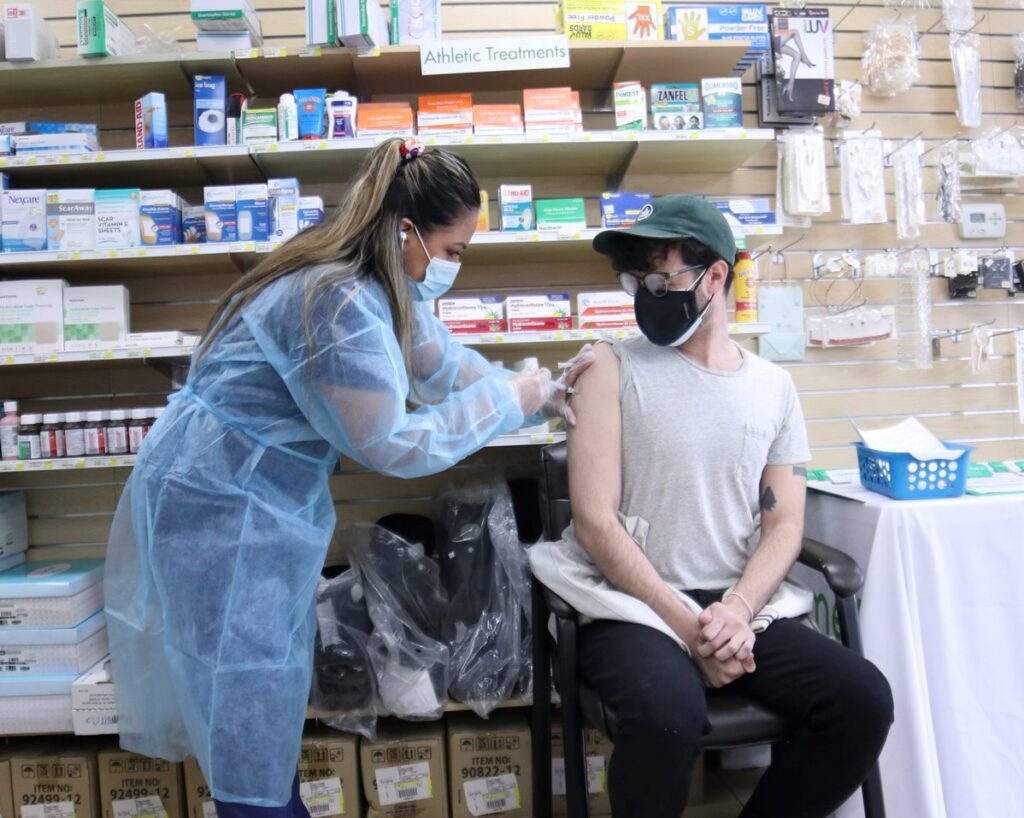“Boosting with updated mRNA vaccines that target SARS-CoV-2 variants stimulates better neutralizing antibody responses than homologous boosters,” emerging evidence shows, according to a recently published study in Nature Medicine.
The study was led by researchers at the University of Arizona College of Medicine.
The COVID-19 mRNA vaccines’ initial efficacies of approximately 95% at preventing symptomatic SARS-CoV-2 have declined, “largely owing to viral evolution and escape from neutralizing antibodies, which are the best correlates of protection against COVID.”
Noting that “there are many factors to consider in heterologous booster shots that could lead to over- or under-performance relative to primary responses,” the study says “bivalent boosters that contain spike protein sequences matched to the ancestral strain and to the Beta variant generate improved neutralizing antibody responses to the Beta variant than another dose of the monovalent ancestral spike vaccine.”
At 28 days after immunization, “the bivalent vaccine yielded only around 10–30% higher levels of Beta variant-neutralizing antibodies than the ancestral monovalent vaccine,” depending on the dose.
However, the difference became more evident six months after immunization, “with neutralizing antibodies decaying less rapidly after the bivalent vaccine than after the monovalent ancestral booster,” the article says.
The study also says, “both homologous and bivalent boosting also induce neutralizing titers against the Delta and Omicron strains.”
Nature points to another study that finds “results indicate that bivalent booster vaccines can induce potent, durable and broad antibody responses against multiple variants, providing a new tool in response to emerging variants.”
12% of US adults don’t plan on getting boosters
However, according to a survey by the Kaiser Family Foundation (KFF), awareness of the updated boosters and their benefits is relatively modest. Only about half of adults say they’ve heard ‘a lot’ (17%) or ‘some’ (33%) about the updated booster shots.
The latest KFF COVID-19 Vaccine Monitor survey issued late last month found that around two-thirds of adults in the United States do not plan to get updated COVID-19 booster shots soon, and only one-third of the polled adults said they either already received the updated shots or plan to get the booster as soon as possible.
While around 12% of adults surveyed said they would definitely not get the shot, 10% said they’d only get it if required, and 18% said they would wait and see whether they would get the new booster shot.




